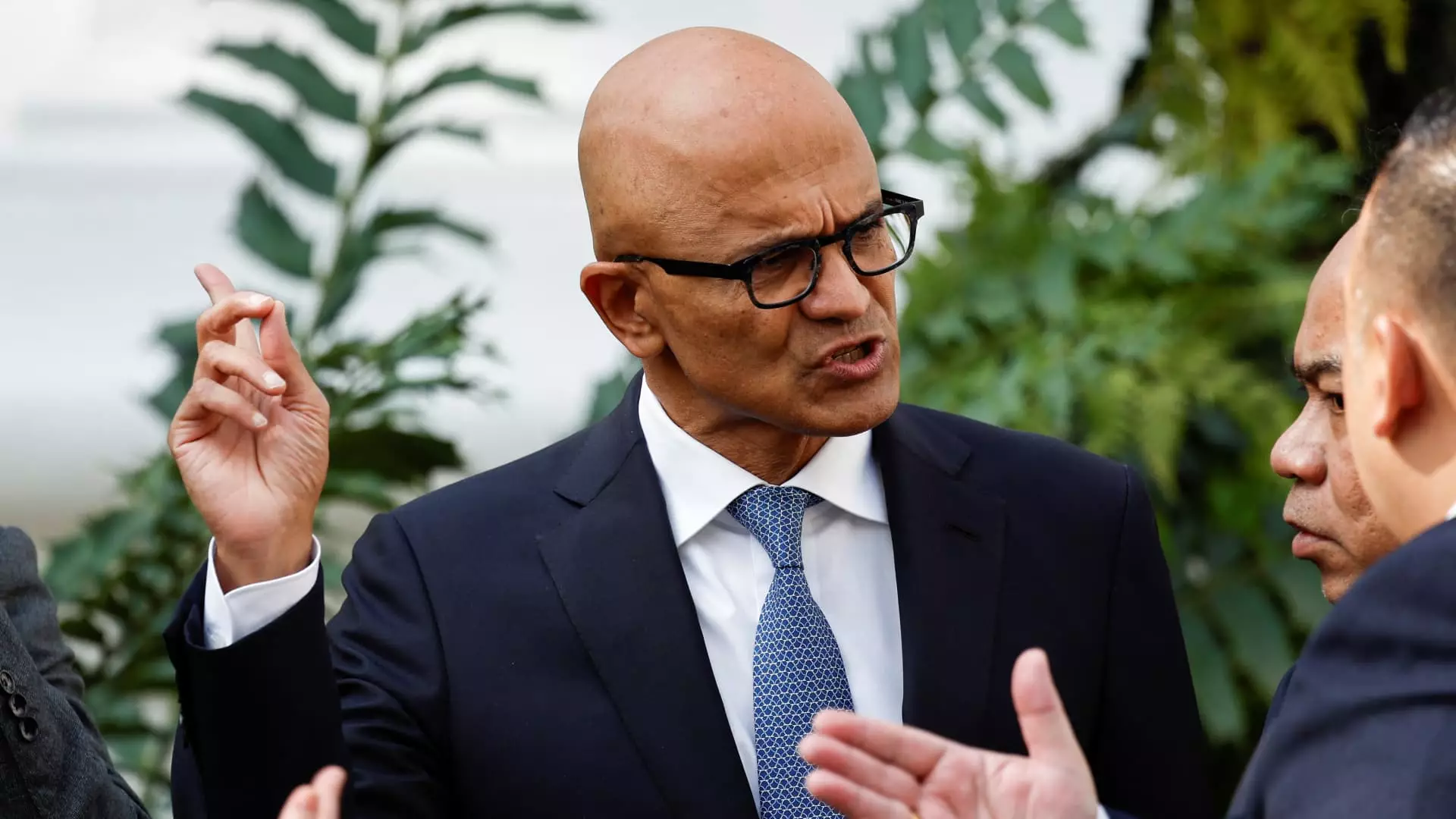Microsoft’s recent mass layoffs paint a picture of a company that appears to be thriving on the surface—surging stock prices, a lofty valuation second only to Nvidia, and a dominant position in software and cloud services. Yet beneath this veneer lies a troubling reality: an industry unmoored from sustainable growth, driven by relentless cost-cutting and structural shifts that threaten its core values. While executives cheer on record shareholder returns, the human costs and strategic instability seem almost invisible, masked by the illusion of technological triumph. This disconnect raises serious questions about the true state of corporate innovation and the sustainability of mega corporations in an era of rapid disruption.
Leadership Under Strain and the Myth of Unwavering Success
CEO Satya Nadella’s candid acknowledgment of the emotional toll layoffs have taken on employees temporarily reveals vulnerability—yet, it arguably masks a deeper crisis of confidence in Microsoft’s long-term trajectory. His comments about success as a “dissonant” process resonate more as a reflection of industry chaos than genuine optimism. Despite maintaining a stable headcount, the decision to wield layoffs as a primary tool for financial agility suggests that even a company of Microsoft’s stature perceives its growth as fragile. The stark reality is that technological dominance no longer guarantees resilience, forcing giants like Microsoft to sacrifice loyalty and morale in service of shareholder value—a short-term fix that risks eroding the foundational trust needed for sustained innovation.
The Broader Sector’s Shrinking Workforce: A Sign of Deeper Malaise
The industry’s layoffs extend beyond Microsoft, with over 80,000 jobs eliminated so far this year—a sobering trend that underscores the fragility of the tech economy. Companies like Recruit Holdings point to artificial intelligence as both an opportunity and a threat; yet, the underlying message is clear: intense automation and AI-driven efficiencies are replacing human labor at an alarming rate. This widespread attrition reveals an industry desperately attempting to recalibrate profit margins amid uncertain demand and an increasingly competitive landscape. It’s a stark contrast to the narrative of relentless innovation, exposing a sector struggling to turn technological breakthroughs into sustainable economic growth rather than just short-term stock gains.
Employee Disillusionment and the Erosion of Corporate Values
Microsoft’s internal discontent highlights a fundamental tension: the perceived loss of ethical alignment in decision-making. Disenchanted employees voice their frustration on social media, lamenting that the company’s stated mission—empowering every person—feels hollow in the face of mass layoffs. This disconnect hints at a troubling erosion of corporate culture, where economic imperatives have overshadowed the principles of loyalty, trust, and shared purpose. Such disillusionment risks fueling a broader talent drain, introducing a cycle where retaining skilled workers becomes increasingly difficult and innovation stalls as morale plummets. Cultivating a genuine commitment to core values amidst relentless cost pressures appears, at best, superficial.
Reimagining Innovation in a World of Uncertainty
Nadella’s call to shift from a “software factory to an intelligence engine” underscores a strategic pivot—one aimed at leveraging AI’s transformative potential. Yet, this vision risks being superficial if it neglects the human dimension essential for meaningful progress. Relying heavily on automation and AI not only accelerates layoffs but also diminishes the role of human ingenuity and collaboration—the very qualities that, historically, fueled true innovation. The industry’s fixation on rapid expansion, quick profits, and technological hype blinds it to the long-term risks of neglecting the societal and ethical impacts of these disruptive changes. Real progress requires integrating human-centric values into technological evolution, not merely replacing human workers with algorithmic shortcuts.
Microsoft’s current stance and the broader industry trends reveal an unsettling paradox: companies deeply embedded in the narrative of technological revolution are becoming prisoners of their own pursuit of short-term gains. The relentless pursuit of AI-driven efficiencies, aggressive layoffs, and shareholder primacy threaten to undermine the very foundations upon which sustainable innovation and social trust are built. In the quest for momentary advancement, the industry risks sacrificing long-term stability, ethical integrity, and the fundamental principle that technology should serve humanity—not the other way around. Until genuine reforms prioritize stability, ethical considerations, and employee well-being, these giants will remain perpetually poised on the edge of crisis, their success increasingly superficial and unsustainable.


Leave a Reply